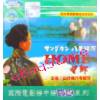
25Dec2025 - 07:51 35 PM
Japanese
Japanese Drama :Hula Girl 呼拉圈女孩 DVD
Code : 9555329221397
| Price : | |
| Weight : | 150 g |
| Genre : | Comedy / Love , |
| Subtitle : | Chinese , English , |
| Language : | Japanese , |
| Video Format : | NTSC , |
| Discs : | 1 |
| Region Code : | ALL , |
| Model : | DVD , |
In 1965, the cold, northern Japanese coal mining town of Iwaki, Fukushima Prefecture was facing unemployment due to reduced coal use, as oil became the predominant energy resource in Japan.
The mining company developed a plan to turn a curse into a blessing, thus to provide employment for several hundred of the workers. Hot springs, which seeped into the mines and had to be pumped out, would be used to instead provide heat and humidity for a Hawaiian Center spa resort. The plan is greeted with skepticism and hostility by the miners, but the company went ahead with the plans, recruiting Madoka Hirayama (Matsuyuki) a down-on-her-luck dance instructor from Tokyo to train local girls in the hula.
At first, only a small core group take the challenge. Sanae (Tokunaga) is worried that her widowed father will lose his job, and the ability to support the four kids. She convinces her lifelong best friend Kimiko (Aoi) to join her at the disastrous first meeting. After the rumor runs through attendees that they will be dancing topless, Sanae and Kimiko seem to be the only two listening to the assurances that the rumor is false, as dozens of their companions flee. The two girls are joined by Hatsuko (Ikezu), the organizer's secretary, and Sayuri (Yamazaki), a big-boned, clumsy tomboy girl who towers over her loving, supporting father.
Things go poorly as training begins, and a frustrated Hirayama nearly gives up, until the girls' enthusiasm persuades her to give the plan another try.
Kimiko and her mother, Chiyo (Fuji) have an argument, which prompts the girl to leave home to stay at the school, but as training continues, and local unemployment looms, some of the other girls come back and join the school.
On the day that Sanae's father is fired, he comes home to find her in Hawaiian costume, and responds by beating her, destroying the costume and cutting off her hair. This outrages Hirayama, who storms into the bathhouse to which he has retreated and attacks him. When he leaves to another mining town, Sanae goes with him to take care of her siblings, after getting Kimiko, who has become the leader of the hula girls, to promise that she will keep going.
Crushed by the departure of her friend, Kimiko finds it impossible to maintain the focus needed in dancing, to be told by Hirayama that a professional has to ignore personal feelings. This is a manifestation of the adage "The show must go on," but she doesn't start to accept this until her brother (Toyokawa) tells her to stick with her decision, believe in her teacher, and see it through. She pulls herself together in time to join the publicity tour.
After a disastrous first performance in the tour, the girls come together as a team and the tour is a great success, until a mine accident in which Sayuri's father is caught. Told of the accident just before the last planned performance, the troupe prepares to leave for home. Knowing that her father wants her to succeed, she begs for the chance to finish the tour. The bus pulls into town hours after Sayuri's father dies, and as distraught family and friends berate her, Hirayama claims responsibility for not returning immediately, accepting another failure in her career.
Her students, however, refuse to let her leave. They run to the train station and persuade her to stay.
One last crisis develops, however, as the imported palm trees and other tropical foliage are threatened by cold weather before the hot water pipes are connected. As the gardeners plead to borrow stoves to save the plants, the miners condemn them and the whole idea of bringing Hawaii to Japan. In the midst of this crisis, a package arrives for Kimiko, and her mother, Chiyo, brings it to the dance studio, where she sees, for the first time, the grace and skill which her daughter has gained. Chiyo then begins to collect stoves to save the plants and give her daughter the chance to live her dream, even attending the opening night of the show, at which Kimiko wears the flower which was in the package, sent by Sanae.
The mining company developed a plan to turn a curse into a blessing, thus to provide employment for several hundred of the workers. Hot springs, which seeped into the mines and had to be pumped out, would be used to instead provide heat and humidity for a Hawaiian Center spa resort. The plan is greeted with skepticism and hostility by the miners, but the company went ahead with the plans, recruiting Madoka Hirayama (Matsuyuki) a down-on-her-luck dance instructor from Tokyo to train local girls in the hula.
At first, only a small core group take the challenge. Sanae (Tokunaga) is worried that her widowed father will lose his job, and the ability to support the four kids. She convinces her lifelong best friend Kimiko (Aoi) to join her at the disastrous first meeting. After the rumor runs through attendees that they will be dancing topless, Sanae and Kimiko seem to be the only two listening to the assurances that the rumor is false, as dozens of their companions flee. The two girls are joined by Hatsuko (Ikezu), the organizer's secretary, and Sayuri (Yamazaki), a big-boned, clumsy tomboy girl who towers over her loving, supporting father.
Things go poorly as training begins, and a frustrated Hirayama nearly gives up, until the girls' enthusiasm persuades her to give the plan another try.
Kimiko and her mother, Chiyo (Fuji) have an argument, which prompts the girl to leave home to stay at the school, but as training continues, and local unemployment looms, some of the other girls come back and join the school.
On the day that Sanae's father is fired, he comes home to find her in Hawaiian costume, and responds by beating her, destroying the costume and cutting off her hair. This outrages Hirayama, who storms into the bathhouse to which he has retreated and attacks him. When he leaves to another mining town, Sanae goes with him to take care of her siblings, after getting Kimiko, who has become the leader of the hula girls, to promise that she will keep going.
Crushed by the departure of her friend, Kimiko finds it impossible to maintain the focus needed in dancing, to be told by Hirayama that a professional has to ignore personal feelings. This is a manifestation of the adage "The show must go on," but she doesn't start to accept this until her brother (Toyokawa) tells her to stick with her decision, believe in her teacher, and see it through. She pulls herself together in time to join the publicity tour.
After a disastrous first performance in the tour, the girls come together as a team and the tour is a great success, until a mine accident in which Sayuri's father is caught. Told of the accident just before the last planned performance, the troupe prepares to leave for home. Knowing that her father wants her to succeed, she begs for the chance to finish the tour. The bus pulls into town hours after Sayuri's father dies, and as distraught family and friends berate her, Hirayama claims responsibility for not returning immediately, accepting another failure in her career.
Her students, however, refuse to let her leave. They run to the train station and persuade her to stay.
One last crisis develops, however, as the imported palm trees and other tropical foliage are threatened by cold weather before the hot water pipes are connected. As the gardeners plead to borrow stoves to save the plants, the miners condemn them and the whole idea of bringing Hawaii to Japan. In the midst of this crisis, a package arrives for Kimiko, and her mother, Chiyo, brings it to the dance studio, where she sees, for the first time, the grace and skill which her daughter has gained. Chiyo then begins to collect stoves to save the plants and give her daughter the chance to live her dream, even attending the opening night of the show, at which Kimiko wears the flower which was in the package, sent by Sanae.
1965年,福岛县磐城市。这里的人们世代以挖煤为生,而如今石油代替煤成了主要能源,昔日鳞次比的煤矿相继关闭,无数的人失去了工作。为了重新让磐城兴旺起来,“常磐夏威夷娱乐中心”的筹建计划出炉了.






















